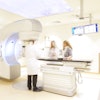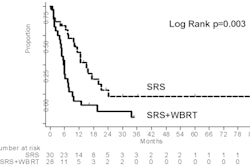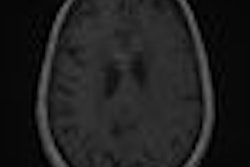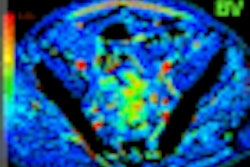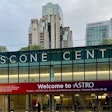A population-based study of women living in Detroit and Los Angeles who had mastectomies in 2002 revealed that approximately 19% of them did not receive postmastectomy radiation therapy, even though there were clear indications for its use.
Based on the responses of the patients themselves, the study also revealed that for approximately 20% of the questionnaire respondents, the use of radiation therapy after mastectomy was never explained to them by any of their doctors.
Researchers at the University of Michigan Medical School in Ann Arbor, Memorial Sloan-Kettering Cancer Center in New York City, and Wayne State University School of Medicine in Detroit mailed questionnaires to 2,382 patients diagnosed with breast cancer under the age of 79. Their findings were published online on January 19 in Cancer.
A total of 1,844 women, or 77.4%, completed and returned the questionnaires. The researchers' analysis was restricted to 396 patients with nonmetastatic invasive breast cancer who had mastectomies. Lead author Dr. Reshma Jagsi, assistant professor of radiation oncology at the University of Michigan, and colleagues assessed rates of explanation, recommendation, and receipt of radiation by indication grouping as defined by 2001 American Society of Clinical Oncology (ASCO) guidelines.
An ASCO consensus statement published in 2001 stated that postmastectomy radiation therapy was recommended for patients with more than four positive axillary lymph nodes. ASCO suggested that radiation also be used for patients with T3 tumors with positive axillary lymph nodes, as well as for patients with operable stage III tumors.
Physician opinion in 2001 was divided with respect to whether patients with T1 of two tumors with one to three positive lymph nodes should also receive postmastectomy radiation therapy, and ASCO's guidelines stated that there was insufficient evidence to make a specific recommendation.
Of the 396 patients in the survey, 148 reported having finished, having started, or were planned to start radiation therapy. The others reported that they were not considering this treatment.
The median age of the patient cohort was 59 years. Caucasian women represented 31.2%, African-American women represented 39.9%, and 62.8% defined themselves as Asian, Hispanic, Native American, and "other." Almost half, 51.6%, had received chemotherapy.
Marital status (married/not married) was evenly divided between the 75% who responded to the question, and income level was also evenly divided among the three possible categories. The group was also evenly divided among high school graduates, women who had some education after high school, and women who were college graduates.
The patients were classified into three groups:
- 175 patients -- Radiation therapy not indicated (44.2%)
- 97 patients -- Opinion divided (24.5%)
- 99 patients -- Radiation therapy indicated (25.0%)
They responded as follows as to whether radiation therapy was explained, recommended, and/or received:
|
There were no significant differences in receipt of treatment by socioeconomic or racial groups, according to the researchers.
Of the 20 women who did not receive radiation therapy and for whom it was recommended, 17 included reasons why they didn't receive the treatment. Respondents were allowed to include any reason that applied. Reasons given by the 17 women included:
- 52.9% -- Physician did not recommend radiation therapy to patient
- 23.5% -- "No need" based on patient opinion
- 17.7% -- Patient did not think radiation treatment would be helpful
- 11.8% -- Patient worried about side effects and complications
- 5.9% -- Patient could not have treatment due to other medical reasons
The authors recommended that future population-based studies should be conducted to assess patients' understanding of the risks and benefits of postmastectomy radiation therapy, the amount of time spent discussing the treatment with surgeons, the number of patients who are referred to radiation oncologists to discuss radiation therapy treatment, and whether greater involvement in this treatment decision is desired by patients.
By Cynthia E. Keen
AuntMinnie.com staff writer
February 16, 2009
Related Reading
Postmastectomy nodal radiation unnecessary for node-negative breast cancer, September 23, 2008
Not all women complete radiation for breast cancer, July 22, 2008
Copyright © 2009 AuntMinnie.com

